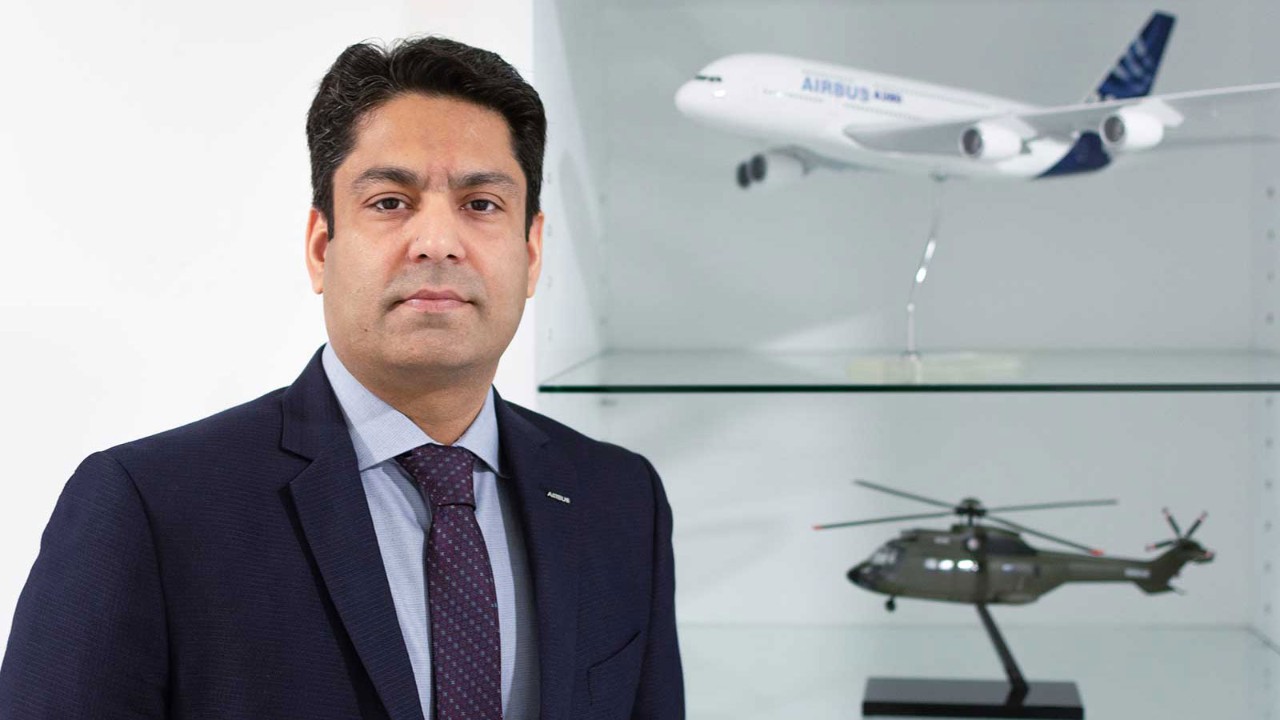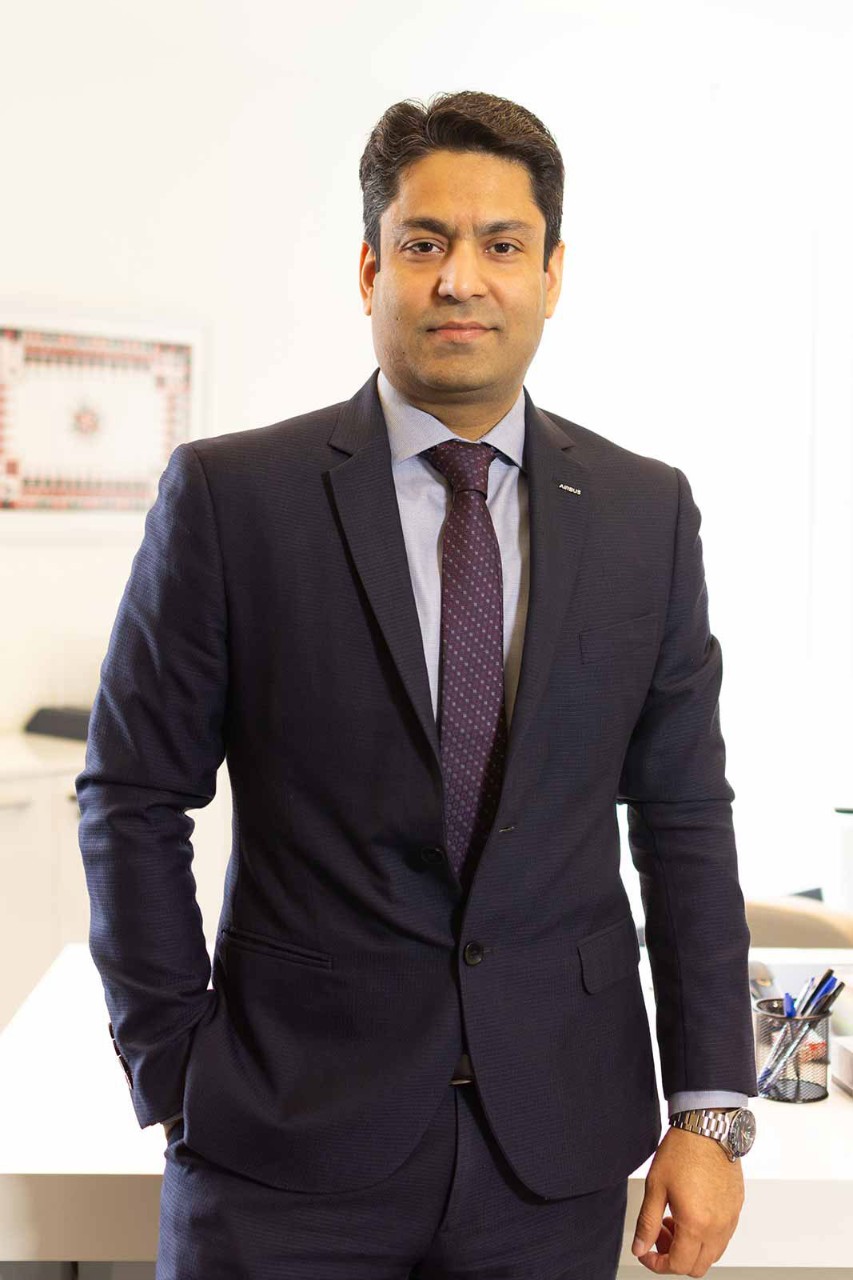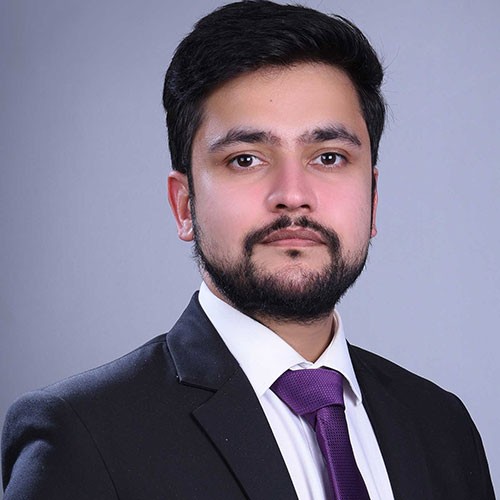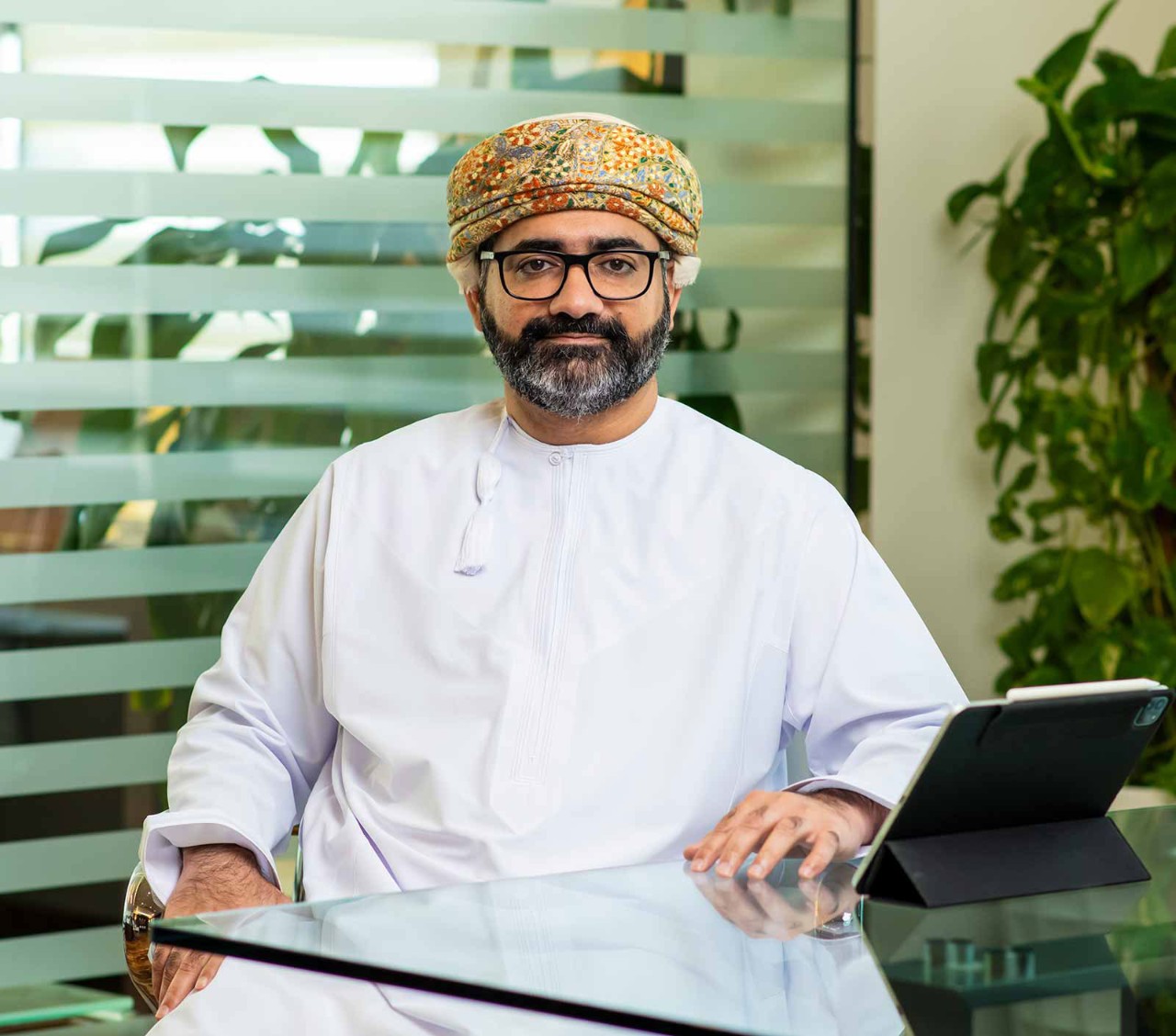
There are two early experiences that Atif Mirza FCCA can point to that helped shape his future career. The first was a meeting with a friend of his father, the second was his own father’s business experience. Both served to set Mirza on his way to becoming country head of finance in Saudi Arabia for Airbus, the aircraft, defence and space conglomerate.
Born in Lahore, Pakistan, Mirza moved with his family to the UK at an early age. It was there that he met a friend of his father who sparked his interest in accountancy as a career choice. ‘He inspired me,’ he recalls. ‘He had his own practice, he was very professional and he clearly knew what he was talking about.’
‘I firmly believe that the harder I worked, the luckier I became’
But Mirza also learned from his father’s business, which had been hit hard financially when one of the companies he supplied went bankrupt. ‘The experience made me financially savvy and forced me to understand the risks that we take in business life,’ he recalls.
Business partner
Mirza began his career working for a number of accountancy firms based in and around London, notably MacIntyre Hudson and Baker Tilly, where he served a wide range of clients: law firms, councils, schools and even museums. During this time, he was able to take an overall view of the businesses he worked with, and saw his role develop into one of business partner for many of his clients.
At the same time, he completed his ACCA qualification, giving him more flexibility. ‘It allowed me to move easily from one firm to another; it was and still is very adaptable,’ he explains.
He then moved from practice to industry, taking on the role of group accountant at Spectris, a FTSE 250-listed supplier of precision instruments, where he stayed for four years until he saw an opportunity to join Airbus in Saudi Arabia. ‘My decision to move was driven by a desire for international exposure, and the chance to work “on the shop floor” in a subsidiary where things are happening,’ he says.
‘When I became a CFO, I wasn’t the finished product’
He started as a finance manager with the defence and space division of Airbus. Some might have seen this as a step down from his previous position at Spectris, but he welcomed the opportunity to learn about operational finance and financial control. ‘I firmly believe that the harder I worked, the luckier I became, and I was later promoted to the CFO position in the same entity,’ he says.
It was a role that exposed him to a number of customer-facing challenges, while also providing insights into how the board operated. Instead of being on the receiving end of strategic decisions, he was able to help form the strategy.
Know the detail
‘When I became a CFO, I wasn’t the finished product,’ he explains, adding that he needed to develop skills in governance, crisis management, HR, project management and relationship building. He took to visiting project sites, something that a CFO would not normally be expected to do. ‘I needed to understand the operational needs. You need to get out and experience the business, as this will help you solve problems more quickly,’ he says, adding that he is ‘still learning.’
‘Even when you are talking to the board, one of the key skills is storytelling’

Networking skills and clear communications are two areas on which Mirza places particular emphasis. ‘As a CFO and as a leader, your job is dealing with people, and the more you understand yourself, the more you will be able to understand others.
‘Even when you are talking to the board, one of the key skills is storytelling. If you can’t explain in a very simple way why the numbers have moved the way they have, then you are missing a key skill.’
This is especially important, he believes, when managing team members from a younger generation. ‘If you just pressure someone to do a good job, they will leave that job. They want more recognition, and rightly so,’ he says. ‘They want to see how they fit in with the wider organisation, and to understand the relevance and the impact of their work in the bigger picture.’
CV
2019
Country head of finance and CFO (defence and space), Airbus, Saudi Arabia
2016
Finance director, Airbus, Saudi Arabia
2012
Head of financial management and reporting, Airbus, Saudi Arabia
2008
Group accountant, Spectris, UK
2005
Audit senior, first at MacIntyre Hudson, then at Baker Tilly, UK
2002
Accounting roles at JRC Chartered Accountants, later senior accountant, Chancellors, UK
Airbus itself is divided into three divisions – commercial aircraft, defence and space, and helicopters. Its customer base in Saudi is primarily government sector organisations. As country head of finance for Airbus in Saudi Arabia, he is responsible for all three areas, while his CFO remit is over defence and space, reporting into the group’s head office in Europe as well as the local CEO.
Team player
Mirza has 15 members in his immediate team, with a mix of local and international experience. He appreciates the value of effective delegation as part of creating a good learning environment, though still relishes the opportunity to roll up his own sleeves when required. And while he enjoys mentoring others, he also has a mentor of his own, demonstrating that he is still keen to learn about other areas of the business: ‘We can know the numbers, but we need to understand the business as well.’
It is this commitment that has led him to recently being named as one of the top 50 CFOs in Saudi Arabia. ‘It was a true honour, and the awards event gave me the chance to meet some of the best finance minds in the kingdom,’ he says with pride. ‘Listening to their thoughts gives you a sense of where you might be heading and is an opportunity to learn.’
‘Vision 2030 is attracting global players in many areas’
During his time in finance, Mirza has witnessed considerable change; having started working with Excel spreadsheets, he finds today’s focus on automation, standardisation, digitisation and cloud-based operations a remarkable transformation. Data analysis is now key to understanding the business, though he expects more advances to come, especially with artificial intelligence. ‘There are endless possibilities’, he says.
The economy of Saudi Arabia is of course going through its own period of transformation, as the kingdom aims to become less reliant on oil revenues through its Vision 2030 initiative. This is resulting in the development of new markets and sectors such as entertainment, sports, tourism, logistics and fintech, all with an eye on the kingdom’s goal of economic sustainability.
‘Vision 2030 is attracting global players in many areas and offers multiple opportunities for many organisations,’ he says. ‘It has the potential to redefine the economic landscape, not only in the Middle East but potentially globally, too.’ And Mirza looks forward to being a part of it all.


